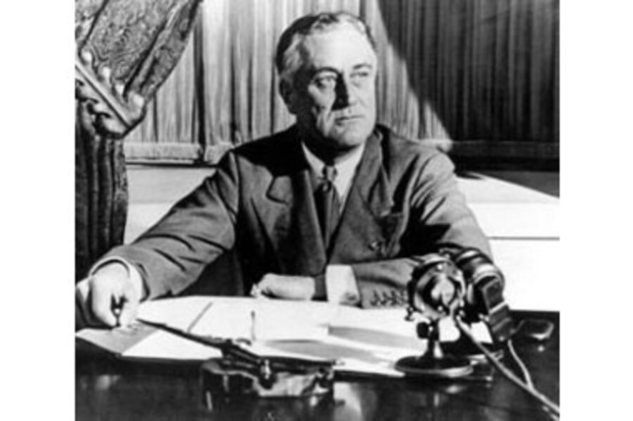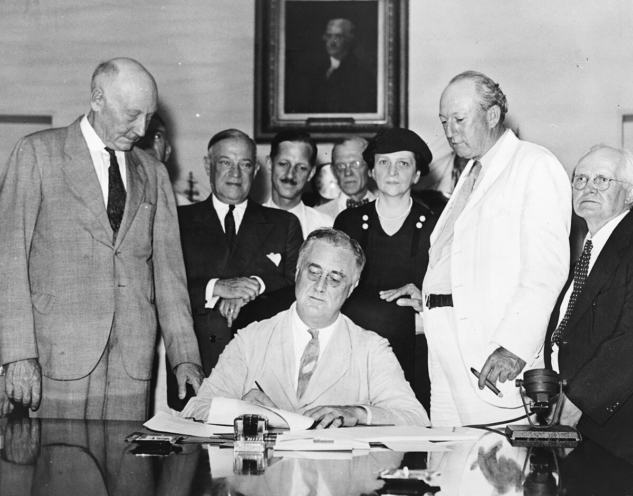
By James Roosevelt, Jr.
Social Security — which turned 88 years old in August — is one of my grandfather’s greatest legacies. It’s no exaggeration to say that this is a high stakes time for his landmark program. Powerful opponents of Social Security are calling for privatization, cutting the annual COLA, raising the retirement age, and even “sunsetting” the program. That’s not something I could bear to see. Not at a time when so many Americans are counting on their earned benefits to make ends meet.
Yet, every time there is talk about reining in budget deficits, many politicians turn to Social Security. It’s always been an easy target for so-called “deficit hawks” in Washington who would much rather chip away at seniors’ earned benefits than reverse decades of unfair (and unpaid for!) tax policies that benefit wealthy Americans and huge corporations.
Fortunately, my grandfather helped structure the Social Security program to make it hard to cut or privatize Social Security. Because Social Security has its own dedicated income stream from the payroll tax, we don’t just trade it off against education or defense or other important priorities.
My grandfather famously said, “With those taxes in there, no damn politician can ever scrap my Social Security program.”

President Franklin D. Roosevelt signs Social Security into law (August 14, 1935)
But today hardliners in Congress are closer than ever to defunding this critical program that provides 66 million Americans and their families with basic financial security upon retirement or disability. The program has never missed a payment — even during war, recessions and a pandemic. And yet, I’m hearing more politicians than ever talking about the need to change, cut, scale back and even end Social Security “for the good of the economy.”
*Senator Rick Scott (R-FL) proposed a plan where Social Security would have to be reauthorized by Congress every five years.
*Senator Ron Johnson (R-WI) said that Social Security spending should be considered “discretionary spending” and subject to routine budget negotiations every year, even though the program is self-funded by workers.
*Other politicians, including potential 2024 presidential candidates, are calling for raising the retirement age to 70. While that may work out just fine for a lawyer or Wall Street broker, raising the retirement age would have the harshest impact on people working in physically demanding jobs.
*Former Vice President Mike Pence, a 2024 presidential candidate, is now calling for major reforms to Social Security, including privatization. And he recently said, “I think we can replace the New Deal programs with a better deal.”
As a reminder, in 2005, the National Committee helped lead intense grassroots activism against former President George W. Bush’s serious attempt to privatize Social Security. (Congressman Mike Pence was involved in that effort). If President Bush had succeeded, his plan would have handed over control of Social Security benefits to Wall Street brokers and subjected the earned benefits of millions of older Americans to the volatility of the Stock Market.

James Roosevelt, Jr., grandson of FDR & vice-chair of NCPSSM Advisory Board
Lawmakers pushing these dangerous and callous proposals are missing an important point: We can’t just change or cut Social Security without risking the livelihoods of millions of retirees. The real power to protect Social Security lies with us. When we stand shoulder-to-shoulder with millions of senior voters — Congress not only listens, it often reacts in our favor.
James Roosevelt, Jr. is the grandson of President Franklin D. Roosevelt, and son of NCPSSM’s founder, Congressman James Roosevelt, Sr. He is vice-chair of NCPSSM’s Advisory Board and served as CEO of Tufts Health Plan. Previously, he served as Associate Commissioner of the U.S. Social Security Administration.


